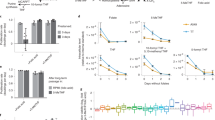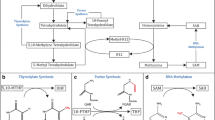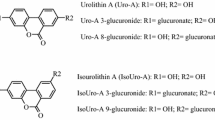Summary.
Background:
There is an increasing evidence, stemming from epidemiological studies as well as studies performed in human biopsies and animal and cell culture models, suggesting that folate is chemopreventive in colonic carcinogenesis. Hyperhomocysteinemia is frequently associated with folate deficiency. Homocysteine, an amino acid, is metabolized to methionine in a 5-methyltetrahydrofolate (5-MTHF) dependent reaction.
Aim of the study:
The aim of this study was i) to evaluate the effects of folate and its metabolites on growth and cell cycle progression in human colon cancer cells (Caco-2) in culture, and ii) to assess the effects of exogenous homocysteine on colon cancer cell proliferation. iii) Having found that homocysteine enhances colon cancer cell growth while metabolites of folate inhibit cell proliferation, we investigated the effects of simultaneous treatment in colon cancer cells.
Methods:
Caco-2 cells were incubated either with homocysteine (0.1–10 µM), and/or with folic acid and its metabolites (0.625–10 µg/ml). Cell proliferation was determined after 24 h and 48 h by measuring 5- bromo-2’-desoxyuridine (BrdU) incorporation. Additionally, the cells were trypsinized and prepared for cell cycle determination using propidium iodide for DNA staining. The stained cells were analyzed using a flow cytometer.
Results:
Folate inhibited cell proliferation moderately within 24 h. Its metabolites, dihydrofolate and 5-MTHF were more potent inhibitors of cell growth. Treatment with folate and 5-MTHF resulted in the accumulation of cells in G1-G0 phase of the cell cycle and decreased the number of cells in G2-M phase. In addition, cells treated with 5-MTHF were predominantly accumulated in the S-phase. There was no difference in cell cycle progression of Caco-2 cells treated with homocysteine in comparison to controls. In homocysteine-treated cells, both folate and 5-MTHF reversed the homocysteine-induced enhancement of growth. In contrast, folate reduced the Caco-2 cell growth rate to control values and 5-MTHF depleted growth of homocysteine-treated cells to levels significantly lower than controls.
Conclusions:
Our data suggest that 5-MTHF, being the key metabolite in both the folate and homocysteine metabolic pathway, is the main modulator of growth-promoting actions of homocysteine as well as antiproliferative effects of folate in colon cancer cells.
Similar content being viewed by others
Author information
Authors and Affiliations
Corresponding author
Rights and permissions
About this article
Cite this article
Akoglu, B., Milovic, V., Caspary, W.F. et al. Hyperproliferation of homocysteinetreated colon cancer cells is reversed by folate and 5-methyltetrahydrofolate. Eur J Nutr 43, 93–99 (2004). https://doi.org/10.1007/s00394-004-0446-6
Received:
Accepted:
Published:
Issue Date:
DOI: https://doi.org/10.1007/s00394-004-0446-6




